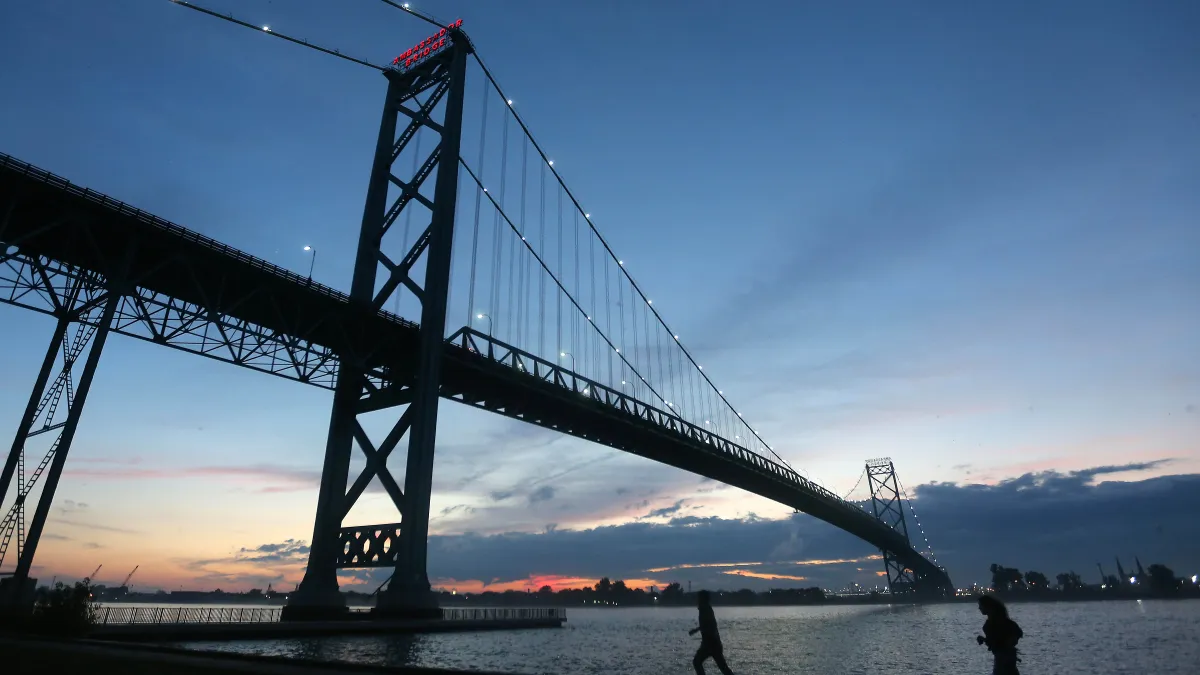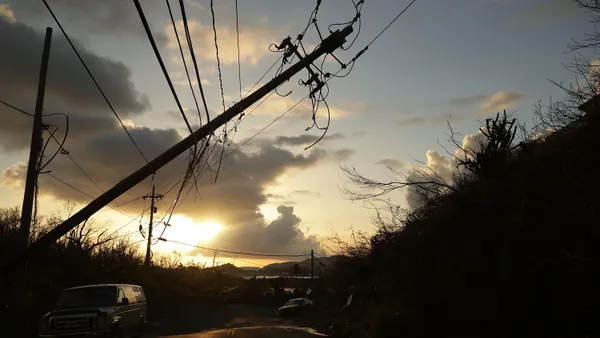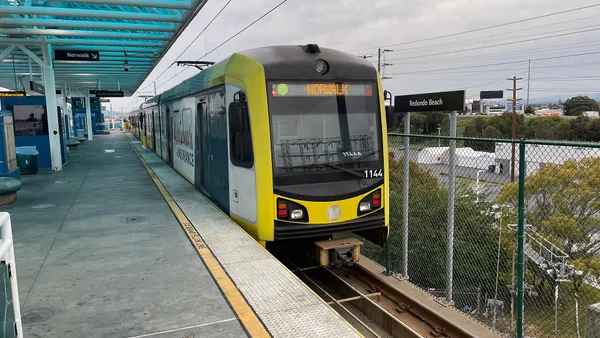Dive Brief:
-
Gordie Howe International Bridge officials have pushed back the bidding process for the U.S.–Canada border crossing until next year to give teams time to consider new requirements, delaying completion until 2023, according to the Windsor Star.
-
At the heart of the schedule change is a $55 million community benefits component to the contract as well as the recent addition of pedestrian and bike paths to the design. Earlier this year, The Windsor-Detroit Bridge Authority agreed to provide job training, health monitoring and improvements to the Detroit neighborhood where the U.S. side of the bridge will be built.
-
Three teams are in the running for the public-private partnership contract. The Authority said it won't provide them with final project details until later this year. Basic port-of-entry work has already started on the U.S. side, and 70% of the necessary land on the Detroit side has been acquired.
Dive Insight:
Community benefits have become a standard part of big construction and development deals, whether they're left up to the contractor or the project owner. And depending on the specific requirements of the Gordie Howe bridge benefits package, the construction team could find itself paying penalties and fines to the city.
That was the case for the $863 million Detroit Red Wings' Little Caesars Arena.
In return for around $285 million in tax breaks and other subsidies, the team and other project stakeholders agreed to set aside 51% of the estimated 5,500 construction jobs at the arena for Detroit residents. However, the project team could not find enough qualified local workers and fell short of the benchmark. That has resulted in $2.9 million in fines as of March for contractors working on the project, according to The Detroit News, citing city data.
By all accounts — even according to city officials — the project team did everything right. They hosted job fairs and offered skills training but still couldn't meet the requirement. That could be a potential roadblock for the team that is selected to build the Gordie Howe bridge.
Other manufacturers and developers who build large projects in the U.S. can usually score financial deals from local and state authorities in return for the promise of more, quality jobs and economic growth.
Taiwanese electronics manufacturer Foxconn announced last month that it was moving forward with its proposed $10 billion investment in a Wisconsin flat-panel display factory. In return, the state has offered $3 billion in tax credits over 15 years. Still, an investment of that scale could cost Wisconsin taxpayers up to $230,700 per worker for each of the 13,000 jobs Foxconn has said it could create there.











